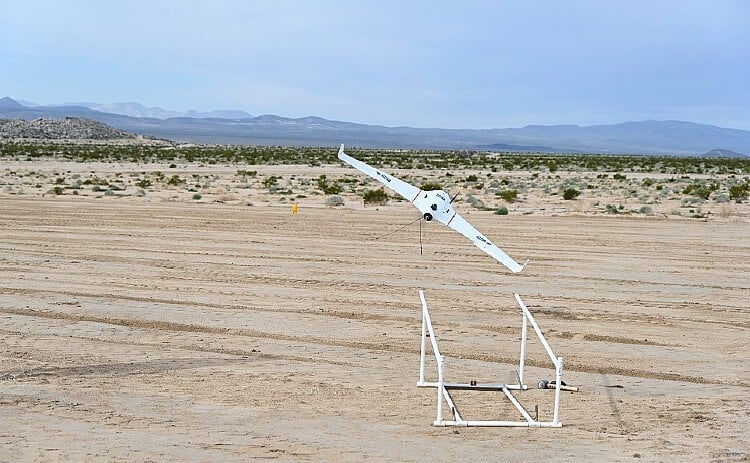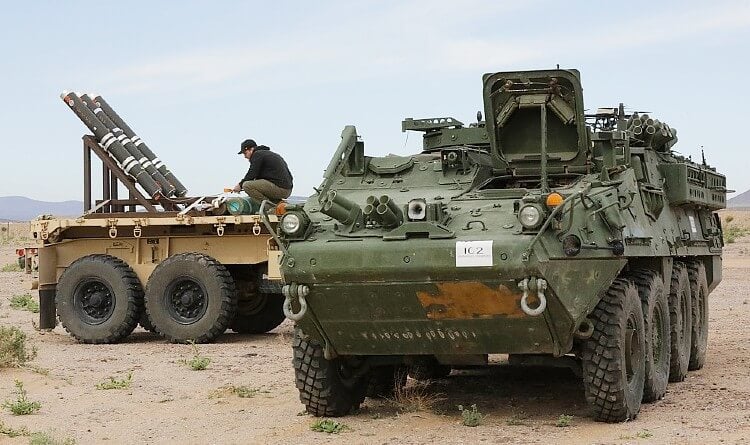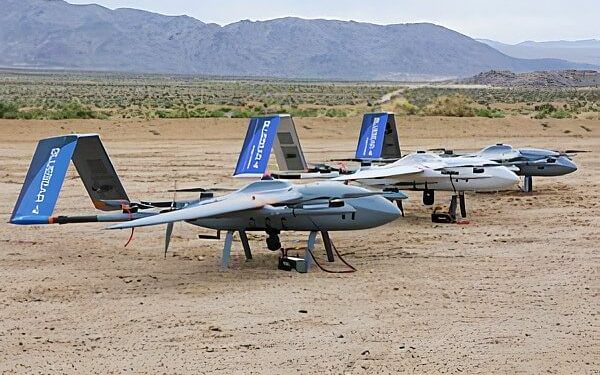In a major milestone, the AUKUS alliance, comprising Australia, the UK, and the US, has conducted real-time trials of AI-enabled uncrewed aerial vehicles.
This ground-breaking collaboration aims to enhance military capabilities, demonstrating the future of warfare where AI and autonomous systems take center stage.

The Dawn of AI in Military Operations
The recent trials under the AUKUS framework have set the stage for a new era of military technology.
These tests, conducted as part of the US-hosted Project Convergence, involved the deployment of AI-powered drones capable of locating, disabling, and destroying ground targets with minimal human intervention.
This advancement not only underscores the significant progress made in AI and autonomous systems but also highlights the importance of trilateral cooperation in maintaining a strategic edge.
Real-time Military Testing
The trials marked the first instance where autonomy and AI sensing systems were used in real-time military environments.
Experts from the Defence Science and Technology Laboratory (Dstl) and other AUKUS partners participated, showcasing the seamless integration of AI across the three nations’ technologies.
The ability of these drones to operate autonomously while being guided by AI algorithms signifies a leap forward in military operations, potentially reducing the time needed to identify and neutralize threats.
Enhancing Operational Efficiency and Safety
One of the primary benefits of these AI trials is the enhancement of operational efficiency. The AI systems used in the trials allowed for rapid decision-making, significantly reducing the time required to identify and engage enemy targets.
This capability is crucial in modern warfare, where speed and accuracy can determine the outcome of an engagement.
- Increased Efficiency: AI algorithms facilitated quicker identification and engagement of targets.
- Safety Improvements: Autonomous systems reduced the risk to human personnel by performing tasks that would otherwise put them in harm’s way.
- Real-time Adaptability: The drones were equipped with AI systems that could be retrained mid-mission, allowing them to adapt to changing battlefield conditions.
The trials also demonstrated how these technologies could operate effectively in contested environments, including areas subject to electronic warfare and GPS disruptions.
This resilience is vital for maintaining operational capability in the face of modern threats, ensuring that the AUKUS partners remain ahead of potential adversaries.

Strengthening Trilateral Cooperation
AUKUS is not just about technological advancements; it is also about fostering deeper cooperation between the three nations. The seamless exchange of data and control between the UK, Australia, and the US during the trials is a testament to the strong partnership that AUKUS represents.
This collaboration ensures that the technologies developed are interoperable, meaning that military personnel from one nation can operate systems developed by another with ease.
- Shared Objectives: The trials emphasized the shared goal of maintaining a strategic military edge through the integration of cutting-edge technologies.
- Collaborative Development: The involvement of defence personnel and industry experts from all three nations ensured a comprehensive approach to developing and testing AI systems.
- Future Integration: The technologies tested are expected to be incorporated into national defence platforms by 2024, enhancing the operational capabilities of each AUKUS member.
Broader Implications for Defence Technology
The AUKUS AI trials are not merely an isolated event; they form part of a broader strategy to incorporate AI and autonomy into military operations on a global scale.
The rapid pace of development in these areas will transform how military operations unfold, creating new avenues for protecting and projecting power.
The ability to integrate these technologies into existing defence structures will be critical in ensuring that the AUKUS partners can effectively respond to evolving threats.
Defence Businesses Benefit
The trials have also opened up new opportunities for collaboration with industry partners. Companies such as Deloitte, Cambridge Consultants, and Blue Bear Systems Research played a crucial role in the trials, providing expertise and technological support.
This collaboration between the public and private sectors is essential for driving innovation and ensuring that the technologies developed are both effective and sustainable.
Future Outlook and Strategic Importance
Looking ahead, the successful trials underscore the importance of continued investment in AI and autonomous systems. As the global security environment becomes increasingly complex, the ability to leverage advanced technologies will be key to maintaining a strategic advantage.
The AUKUS partnership, with its emphasis on collaboration and innovation, will pioneer this new era of military technology.
- Strategic Advantage: By accelerating the development and deployment of AI and autonomous systems, AUKUS partners are ensuring that they remain at the forefront of military innovation.
- Global Impact: The technologies tested in these trials have the potential to influence military operations worldwide, setting new standards for how AI is integrated into defence strategies.
- Sustained Collaboration: The ongoing cooperation between the UK, Australia, and the US is crucial for the continued success of these initiatives, with each nation bringing unique strengths to the partnership.
Participants in AUKUS AI Trials
Participant |
Role |
Nation |
|---|---|---|
| Defence Science and Technology Laboratory (Dstl) | Lead on AI trials | UK |
| Project Convergence | Host of the trials | US |
| Commodore Rachel Singleton | UK lead for AUKUS AI and Autonomy | UK |
| Blue Bear Systems Research | Industry partner providing UAV technology | UK |
| Air Force Research Laboratory | Participant in AI systems testing | US |
A New Frontier for Defence
The AUKUS AI trials represent a significant step forward in the integration of AI and autonomy into military operations.
By working together, the UK, Australia, and the US have not only demonstrated the potential of these technologies but have also strengthened their strategic partnership.
As these advancements continue to unfold, the AUKUS alliance will play a critical role in shaping the future of military technology, ensuring that the three nations remain at the cutting edge of defence capabilities.
Sources: THX News, Sea Power Magazine, US Department of Defense, CSIS & Defence Science and Technology Laboratory.









